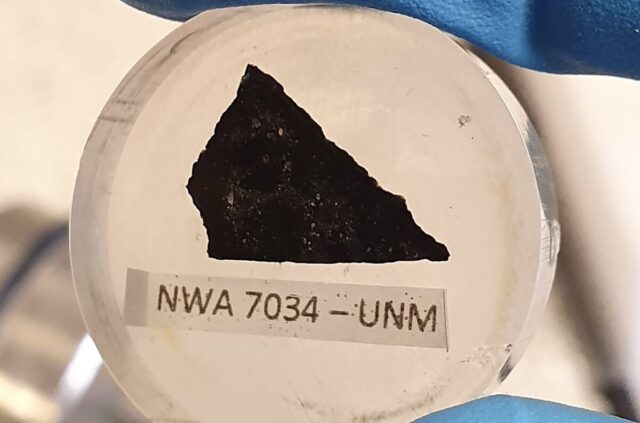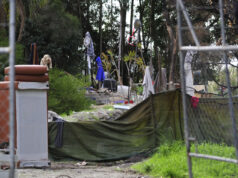
In what may be the oldest direct evidence of ancient hot water activity on Mars, new research led by Curtin University has uncovered clues suggesting the planet may have once been habitable.
The study examined a 4.45 billion-year-old zircon grain from the renowned Martian meteorite NWA7034, also known as Black Beauty, which was discovered in 2011 in the Western Sahara, uncovering geochemical ‘fingerprints’ of water-rich fluids.
Dr Aaron Cavosie, a co-author from Curtin’s School of Earth and Planetary Sciences, said the discovery paves the way for deeper insights into ancient Martian hydrothermal systems linked to magmatism.
The findings also raise the age-old question, as David Bowie famously asked, Is (was) there life on Mars? Opening up new possibilities for understanding the planet’s potential to have supported life in its distant past.
“We used nano-scale geochemistry to detect elemental evidence of hot water on Mars 4.45 billion years ago,” Dr Cavosie said.
“Hydrothermal systems were essential for the development of life on Earth, and our findings suggest Mars also had water, a key ingredient for habitable environments, during the earliest history of crust formation.”
“Through nano-scale imaging and spectroscopy, the team identified element patterns in this unique zircon, including iron, aluminium, yttrium and sodium. These elements were added as the zircon formed 4.45 billion years ago, suggesting water was present during early Martian magmatic activity.”
Dr Cavosie said the research conducted at Curtin University revealed that despite Mars’ crust enduring massive meteorite impacts that caused significant surface upheaval, water was present during the early Pre-Noachian period, dating back to more than 4.1 billion years ago.
“A 2022 Curtin study of the same zircon grain found it had been ‘shocked’ by a meteorite impact, marking it as the first and only known shocked zircon from Mars,” Dr Cavosie said.
“This new study takes us a step further in understanding early Mars, by way of identifying tell-tale signs of water-rich fluids from when the grain formed, providing geochemical markers of water in the oldest known Martian crust.”













